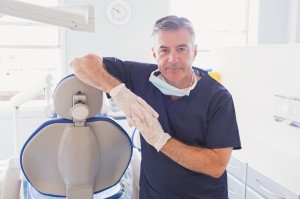Dentists: The Routine Specialist
 It’s strange if you think about it. When it comes to the health of our bodies, Americans will typically act in a certain order: the first thing they’ll do is visit their regular doctor, either a general practitioner or a pediatrician. If the doctor discovers something wrong with the patient that some rest and a few painkillers can’t fix, the physician will send him or her along to a specialist who will know more about the particular part of the body that’s acting up. After that comes the treatment, and with luck the patient will be as good as new by the end of it.
It’s strange if you think about it. When it comes to the health of our bodies, Americans will typically act in a certain order: the first thing they’ll do is visit their regular doctor, either a general practitioner or a pediatrician. If the doctor discovers something wrong with the patient that some rest and a few painkillers can’t fix, the physician will send him or her along to a specialist who will know more about the particular part of the body that’s acting up. After that comes the treatment, and with luck the patient will be as good as new by the end of it.
However, there is one specialist who gets to skip over this “gateway” process: the dentist. General practitioners and pediatricians don’t check their patients’ teeth because they don’t have to – they know that their patients will visit a dentist who will clean their teeth and check for cavities regardless of what they recommend. And even if their patient avoids dentists, that’s the patient’s decision and the patient’s responsibility.
Dentistry has been a separate discipline from the rest of medicine for hundreds of years, ever since medieval kings determined that tooth extraction was safe enough for medically untrained barbers to perform. Tooth extraction is also the one surgery that virtually everyone will have to go through at some point: few people have mouths big enough to safely keep their wisdom teeth, so even if they go through their whole lives without a single cavity, they’ll still need someone to pry four teeth out of their mouth.
Another reason that we visit our dentists regularly is because, unlike most of the rest of our bodies, our teeth can’t regenerate or heal themselves. Our bones are composed of billions of cells which constantly build up and dissolve the calcium lattices that give them their shape, and it’s because of this that our bones have the ability to heal after being broken. However, the enamel that coats our teeth isn’t alive in the same way that our bones are, and once it’s gone there’s no way of getting it back. As such, we need dentists to check on our teeth regularly and make sure they aren’t developing cavities or other diseases.
Dentists are a part of the larger medical profession, but at the same time they stand apart from traditional clinics and hospitals. Far from making them less important like the untrained barbers of old, the separation of modern dentistry only goes to show just how important dentists and our teeth really are.